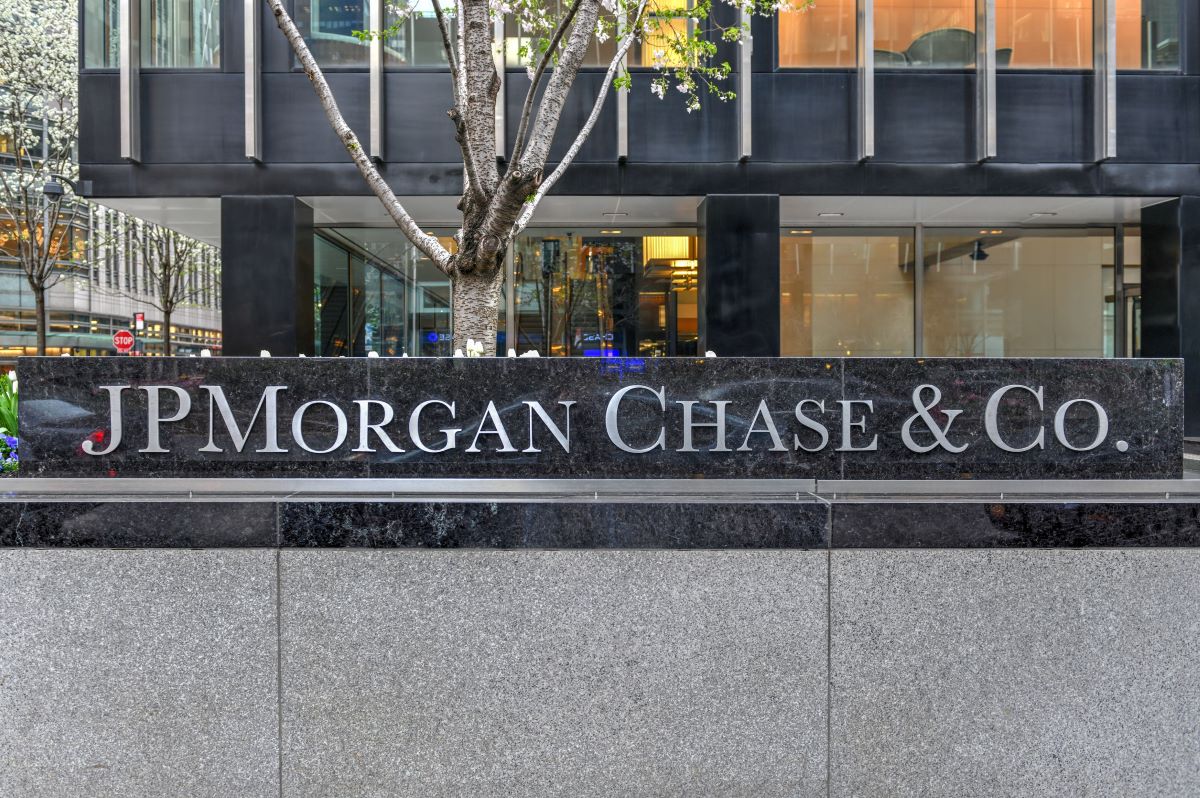JPMorgan’s strong wellness foundation made pandemic transitions easier
Existing mental health and childcare programs provided a framework for quickly expanding benefits.

Last year as organizations everywhere scrambled for stability in a pandemic, those with solid wellness foundations struggled less.
Some had already been working to destigmatize mental health issues and champion more equitable childcare solutions at the front of the curve. One example is JPMorgan Chase. The New York City-based financial-holding company, with 260,000 employees, has many business lines and job titles to serve, from the C-suite to bank tellers. “We have a global vision and mission around wellness, which is really to foster a culture of health and wellness throughout the organization,” says global wellness manager Lilly Wyttenbach.

The company has a three-pillar foundation upon which to build its wellness programs, ensuring they stay grounded in the organization’s wellness culture. It’s a proven approach, having been recognized repeatedly for its work. Forbes named JPMorgan Chase one of America’s Best Large Employers for 2021, and it made Forbes’ top 100 of America’s Best Employers for Women for 2020.
A comprehensive foundation
JPMorgan’s health pillar concentrates on physical health. It operates 26 health centers for U.S. employees. It employs its own clinicians and boasts mental health-trained professionals who work onsite. Some of the benefits the clinics offer include:
- Pre-screening
- Biometrics
- Condition management
- Mental health support
- Smoking cessation
- Nutrition coaching
- Weight management
A second pillar, referred to as “Balance,” focuses on employees’ emotional wellbeing. The company opened an organization-wide conversation around mental health back in 2015, led by company leaders. It focuses on four key areas:
- Getting employees the right help at the right time.
- Engaging managers and leaders to carry the effort forward within their teams.
- Dispelling myths and stigmas around mental illness.
- Giving wide-scale support to people who need help.
Another area of the balance pillar focuses on working parents and families. JPMorgan curated its own brand, “Parents@JPMC,” to ensure a work/life balance was part of the company culture.
The final pillar is finance, which the organization has chosen to focus on specifically for the last 18 months, Wyttenbach says. While JPMorgan offers traditional financial benefits, it launched a large-scale initiative around counseling and coaching through a third-party provider, Financial Finesse. The strategic program focuses on saving and budgeting, helping employees get out of debt, focus on the future, and reaching goals. “Finance issues were exacerbated during the pandemic, but we didn’t let it derail our plan on the larger strategy,” Wyttenbach says. “We wanted to be flexible and innovative.”

Recognizing the tie between financial stability and overall wellness, JPMorgan offers the coaching program free to employees.
Mental health culture pays off
Because of programs like “Parents@JPMC” and five years of weaving mental health into its culture, JPMorgan was better able to transition last year when employees were facing stress and anxiety and childcare burdens during the pandemic. “We’re still a big company with very diverse business lines, but as we were turning things on, we had the infrastructure already,” Wyttenbach notes.
The initial struggle wasn’t that few programs were available, but that communicating them was overwhelming the employees. Once JPMorgan took control of the narrative, it packaged the benefits to better get its message across.
Working with the HR department, a nearly 50-person team ran its COVID-19 response. Benefits information went through several channels:
- Intranet
- Emails
- Direct mailers for childcare benefits education
- Social media chats for those without regular email access
- Digital signage in the office reached onsite workers
To support employees’ mental wellbeing, JPMorgan leveraged its available mental health resources. Wyttenbach says the trust of employees made engagement easier. In a campaign called “This Is Me,” employees shared with their peers their own struggles with mental illness and how they overcame them. The wellness team provided workers with tool kits of mental health resources.
The organization also introduced a program called “Coping Connections” as a gateway to the EAP program. It allows employees to gather under specific topics in a virtual chatroom on Zoom. Parents struggling with remote work, for example, or those grieving the death of George Floyd, were able to connect under the supervision of one of JPMorgan’s trained mental health clinicians. The program was an engagement success, with nearly 7,000 employees using it so far. JPMorgan is keeping the program in place.
Award-winning childcare program does even more
Already recognized for its comprehensive childcare policies, JPMorgan extended benefits and created new ones. The company runs 14 childcare centers at its U.S. regional locations. Despite pandemic closures, it was able to keep three open with safety measures in place, while the others shut for several months. They’re all currently open.
Meanwhile, the backup childcare benefit was extended from 20 days to 30 through provider Bright Horizons. JPMorgan also began covering full-time childcare for the first time. Other benefits included discounted virtual tutoring resources, in-home childcare, and resources for finding nannies, babysitters, and caregivers.
Wyttenbach says JPMorgan plans to stay the course on its vision to empower employees to prioritize making positive lifestyle choices. “The implications of the pandemic aren’t going away, so we’re pivoting to best meet their needs,” Wyttenbach says. “We haven’t altered anything to our core strategy, we’ve just become more flexible in our delivery.”
COMMENT
Ragan.com Daily Headlines
RECOMMENDED READING
Tags: childcare, health centers, JPMorgan Chase, mental health, Wellness

